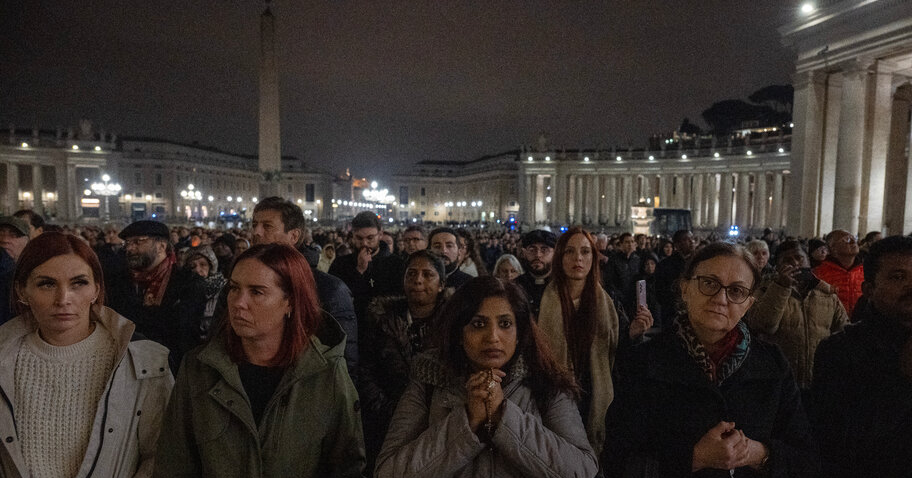Vatican City is an anxious place. Clergy keep their phones by their pillows. Reporters, crammed in the Holy See press office, open emails with trepidation. Faithful have begun to gather expectantly in St. Peter’s Square.
All await terse bulletins from the Vatican on the condition of Pope Francis, who remains critical after being taken to a hospital 11 days ago with bronchitis that developed into pneumonia in both lungs. On Monday afternoon, hours before the Vatican reported a “slight improvement,” the phones of Vatican officials buzzed with texts falsely reporting Francis’ death.
Francis, who now has the beginnings of kidney failure and infections, may yet recover, though the prognosis is not promising, doctors say. For veterans of papal transitions, the daily health bulletins, the influx of global media, the rampant speculation and the special prayer services have a familiar and ominous feel.
“These are delicate moments,” said Duban Corredor, a 27-year-old seminarian from Colombia, who came to St. Peter’s Square on Monday night to pray the rosary for Francis, who he noted had always concluded his conversations and remarks with an appeal to “pray for me.”
The seminarian said he had assisted Francis during a Christmas Eve prayer service and saw him deeply tired, but also at peace. “I don’t think it will be long — I think he’s preparing for a moment of tranquillity, knowing that this is the end of his life.”
On a damp Monday evening, Cardinal Pietro Parolin, the Vatican’s second-in-command, who is a fixture in the increasing speculation about who might replace Francis, led cardinals, bishops and a few thousand faithful in front of St. Peter’s Basilica in a rosary prayer for the pope’s health.
Thank you for your patience while we verify access. If you are in Reader mode please exit and log into your Times account, or subscribe for all of The Times.
Thank you for your patience while we verify access.
Already a subscriber? Log in.
Want all of The Times? Subscribe.


